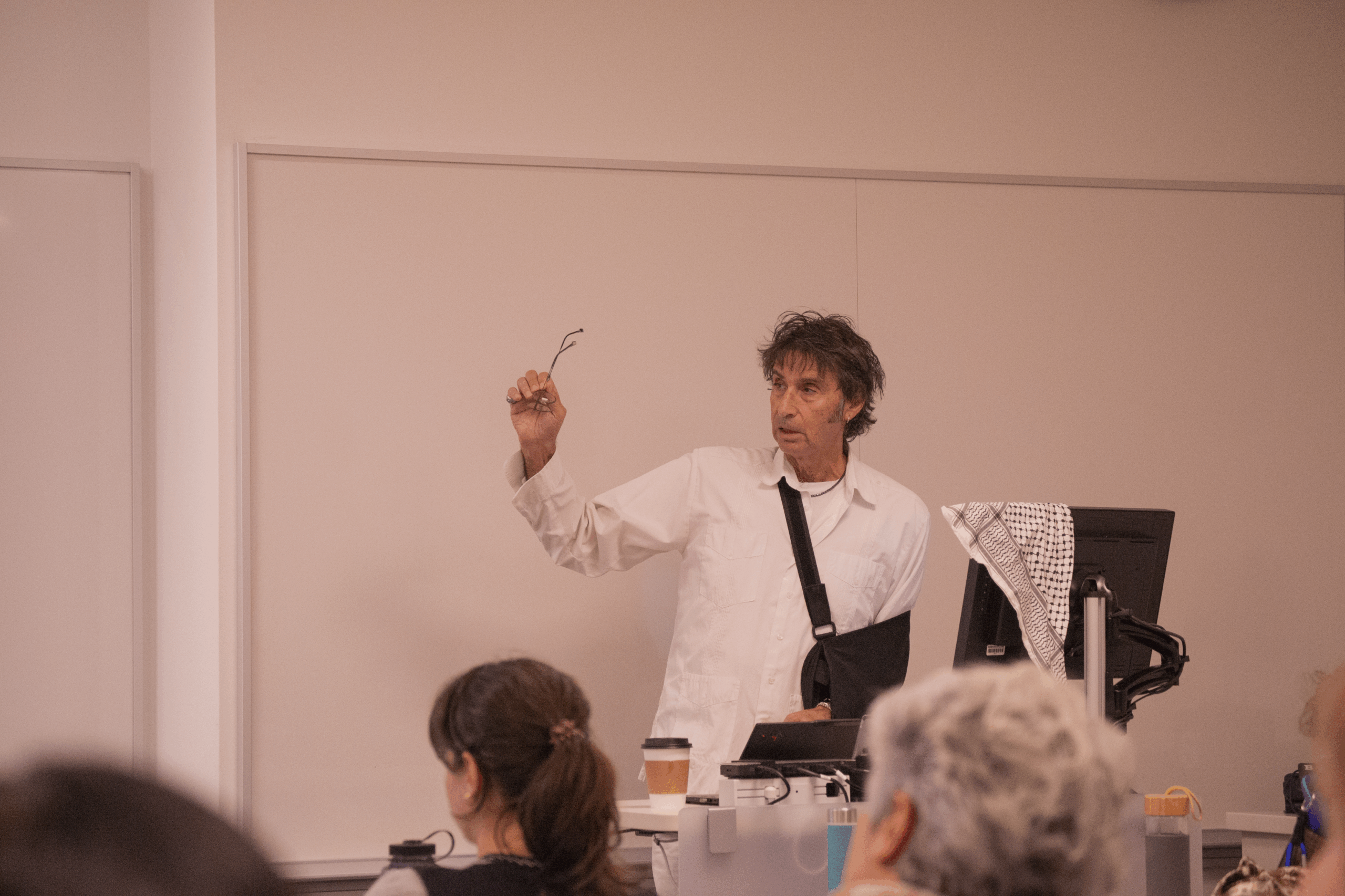Activist and NYU professor Andrew Ross speaks on colonialism and climate justice in Palestine
October 17, 2025
 Jared Scott
Jared ScottLast Thursday, activist and professor Andrew Ross spoke to a packed room of students and faculty in Sills Hall. His talk, “Colonialism and Climate Justice in Palestine,” explored how water access is being used to fuel a genocide in Palestine and the complicated history behind water access in both Palestine and Israel.
Ross is a social activist, author of 25 books and a professor of social and cultural analysis at New York University. The lecture was based around his most recent book, “The Weather Report: A Journey Through Unsettled Climates.” The talk was divided into two parts: first, the history of water in Israel and Palestine, and second, how the modern Israel-Palestine status quo has changed after the October 7 attack.
First, Ross explained how the history of conflict over water between Israel and Palestine dates back to before Israel’s formation. In 1937, officials in British-controlled Palestine published a paper estimating that there was enough water to support a population of two million people in historic Palestine—which was already less than the total population living there. In response, the British government limited Jewish immigration to Palestine for five years, after which the Palestinian people would have a significant voice on the amount of allowed Jewish immigration.
“Of course, this was unacceptable to the Zionist community,” Ross said. “[The Zionist community] pushed back very hard, and they put a lot of pressure on the U.N., and the result was the [1947] U.N. Partition Plan.”
The U.N. plan led to the foundation of an Israeli state, which was disproportionately larger than its population at the time, that was allocated land on the basis that they possessed superior technology to obtain water from these regions.
Ross explained that when Israel was founded, the government’s first act was to create the National Water Carrier, which diverted water from the West Bank to Israeli settlements on the northern coast. Ross then described the modern status quo for water in Palestine prior to October 7 as a slow dehydration campaign by Israel.
Ross emphasized that the water shortage is not a function of overpopulation but a deliberate strategy of the Israeli government to make room for Israeli settlers by forcing Palestinian people off of West Bank land. Ross discussed how the West Bank sits on a large aquifer, and, according to the 1994 Oslo Accords, Israel is required to supply a quota of water to Palestine. In addition to that, most villages and cities in the area sit atop springs of fresh water.
Israel has been deliberately cutting the supply of water from all of these sources, Ross said. Palestinians are banned from digging new wells, and Israeli settlers have been caught pouring cement down wells to destroy them, as well as seizing them for personal use.
The water quota has also remained the same since 1994 despite significant population growth in Palestine, and the quota is sometimes left undelivered.
Ross further explained how, after October 7, Israel had been using water as a mechanism to force Palestinians off their land. The water Israel was supposed to provide to Palestine has been cut off, and Israel has been deliberately bombing both salination sites and the solar panels used to power them. Ross emphasized that there are no more salination plants in the Gaza Strip.
“Israel has its hands on a giant tap and can turn it on and off at will,” Ross said. “[Israel] will do that as a form of collective punishment and also as a way of forcing people off the land.”
Ross describes this practice as “colonization by dehydration,” arguing that Palestinian people are forced to flee or die in service of expanding the territory available to Israeli settlers. It’s important to note, he pointed out, that settlers are connected to the water supply and are allowed to dig wells with advanced technology to access the aquifer.
Attendee Julia Xiang-Wang ’26 described the talk as incredibly informative.
“It was really interesting the way Ross talked about different methods the Israeli government was using to restrict or induce work in Israel [and] to bring Palestinians off their lands,” Xiang-Wang said.

Comments
Before submitting a comment, please review our comment policy. Some key points from the policy: